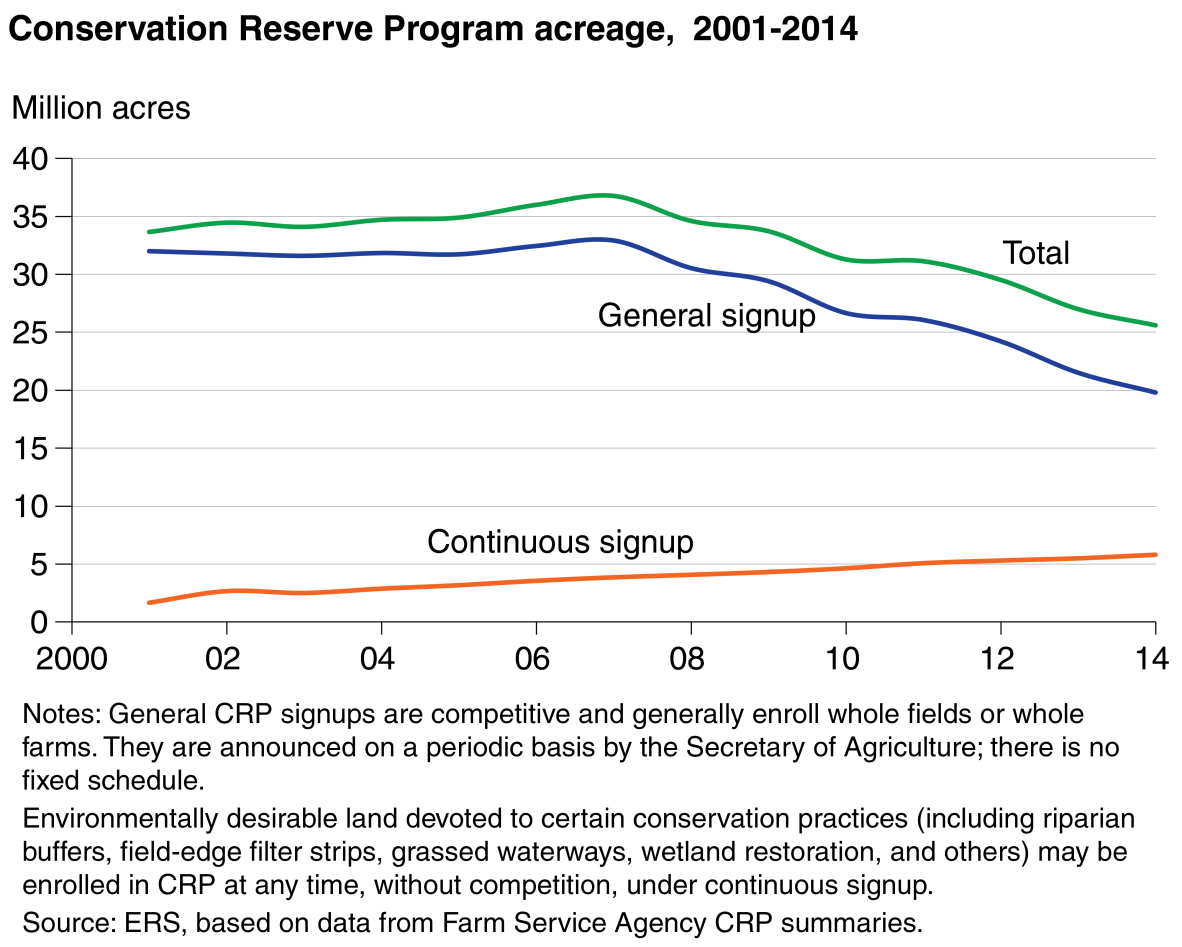Conservation Reserve Program acreage, 2001-2014
- by Roger Claassen
- 3/8/2014

While the new CRP acreage cap cuts maximum enrollment by 25 percent, the impact on program enrollment and related environmental benefits may be relatively modest. CRP acreage has been declining since 2007, falling from 36.8 million acres to 25.6 million?30 percent?by December 2013. Environmental benefits, however, may not be diminishing as quickly as the drop in enrolled acreage might suggest. CRP has shifted rapidly from enrolling whole fields or farms (through general signup) to funding high-priority, partial-field practices, including riparian buffers, field-edge filter strips, grassed waterways, and wetland restoration (through continuous signup). On a per-acre basis, these practices are believed to provide greater environmental benefits than whole-field enrollments while taking less land out of crop production. Because partial-field practices are more expensive, however, CRP annual payments have fallen by only 10 percent since 2007. At the end of 2013, the average annual payment for partial-field practices was $103 per acre, versus only $50 per acre for whole fields.
